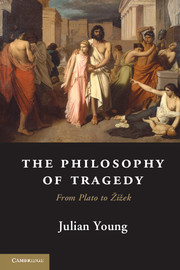Book contents
6 - Hölderlin
Published online by Cambridge University Press: 05 June 2013
Summary
Friedrich Hölderlin (1770–1843) was a close friend of both Schelling’s and Hegel’s during their time as students at the Protestant seminary in Tübingen. Unable to accept the metaphysical aspects of Christianity, Hölderlin abandoned the aspirations to enter the priesthood which had led him to Tübingen, becoming instead a tutor and poet. The most traumatic event of his life was the enforced termination of his love affair with Susette Gontard, the wife of the banker who employed him. Many of his poems mourns his loss, idolising Susette under the pseudonym ‘Diotima’. With the onset of what would probably be now described as schizophrenia in 1806, Hölderlin’s creative life came to an end: he spent his last thirty-five years in a twilight condition. Regarded as unintelligible and even unhealthy during his lifetime, his poetry is now recognised as among the finest in the German language. He was a thinker as well as a poet: there is a great deal of philosophy in his poems – and a great deal of poetry in his philosophy. As we shall see in Chapter 12, Martin Heidegger conceived the task of much (even all) of his later philosophy to be the exposition of Hölderlin’s poetry.
Like all German thinkers Hölderlin loved Greece, although, we shall see, his ‘Greece’ was very different from that celebrated by Goethe and Winkelmann in the earlier part of the eighteenth century. In part, this was because his view of Greece was refracted through Kant’s philosophy. His first major work, the poetic novel Hyperion, written as a series of letters, was begun in 1792, shortly after he had become tremendously excited by Kant’s Critique of Judgment. ‘Kant and the Greeks almost exclusively occupy my thinking’, he wrote Hegel, and later, ‘Kant is the Moses of our nation who leads us out of Egyptian apathy into the free, solitary desert of his speculation’ (FH, p. 137). What excited Hölderlin as much as it excited Schelling, we shall see, is Kant’s articulation of the notion of the sublime, of a sublime state of mind in which we escape the ‘apathy’ of mundane experience.
- Type
- Chapter
- Information
- The Philosophy of TragedyFrom Plato to Žižek, pp. 95 - 109Publisher: Cambridge University PressPrint publication year: 2013



